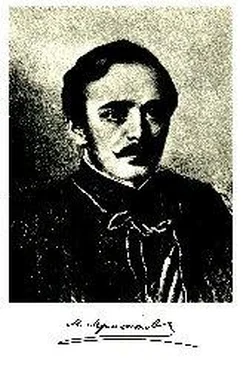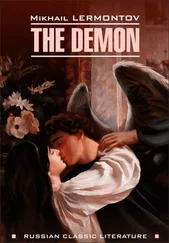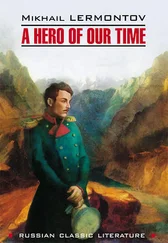I have just seen Vera. She nagged me to death with jealousy. I figure Princess Mary has chosen to confide her secrets of the heart to Vera. An appropriate choice, that's for sure!
"I can guess what it all will lead to," Vera said to me. "It'd be better if you told me frankly now that you love her."
"But supposing I don't love her?"
"Then why pursue her, disturb her and stir her imagination? Oh, I know you too well! If you want me to believe you, come to Kislovodsk [97] another spa to the west some ten miles.
a week from now. We are going there the day after tomorrow. Princess Ligovskaya is remaining here a little longer. Rent the apartment next door to ours. We'll stay in the large house near the spring, on the mezzanine floor. Princess Ligovskaya will occupy the floor below, and next door there's another house belonging to the same owner which hasn't been taken yet-Will you come?"
I promised, and the very same day sent a message to rent the apartment.
Grushnitsky dropped in at six in the evening and announced that his uniform would be ready the next day, just in time for the ball.
"At last I'll dance with her all evening... And talk to my heart's content," he added.
"When is the ball?"
"Tomorrow. Didn't you know? It's quite a gala event, and the local authorities are sponsoring it."
"Let's go out on the boulevard."
"Goodness no, not in this hideous overcoat..."
"What? Do you mean to say you don't like it any more?"
I went out alone, and, encountering Princess Mary, asked her for the mazurka. She looked surprised and pleased.
"I thought you danced only when necessary, like the last time," she said, smiling very prettily.
She seemed to be totally unaware of Grushnitsky's absence.
"You'll have a pleasant surprise tomorrow," I said to her.
"What is it?"
"It's a secret... You'll see for yourself at the ball."
I wound up the evening at Princess Ligovskaya's. There were no guests besides Vera and a very amusing old man. I was in good form and improvised all kinds of fantastic stories. Princess Mary sat opposite me listening to my chatter with an attention so great, intense and even tender, that I felt a pang of remorse. What had become of her vivacity, her coquetry, her caprices, her haughty air, her contemptuous smile and absent gaze?
Vera noticed it all and a deep sadness was reflected on her thin face. She sat in the shadows at the window, sunk in a large armchair. I was sorry for her...
Then I told them the whole dramatic story of our friendship and love, naturally using fictitious names.
So vividly did I describe my tender feelings, anxieties and raptures, and portrayed her actions and character in so favorable a light that she could not but forgive me my flirtation with the young princess.
She got up, moved to a seat closer to us and recovered her spirits... and only at two o'clock in the morning did we recollect that her physician's orders were to retire at eleven.
Half an hour before the ball, Grushnitsky came to my apartment in the full splendor of an infantry officer's uniform. A bronze chain on which a double eyeglass dangled was attached to his third button. He wore epaulets of incredible size which curled up like Cupid's wings. His boots squeaked. In his left hand he carried both a pair of brown kid gloves and his cap, while with his right he kept twirling his frizzled forelock into tiny curls. Complacency tinged with a certain hesitancy was written on his face. His festive appearance and his proud carriage would have made me roar with laughter had that been in keeping with my intentions.
He threw his cap and gloves on the table and began to pull at his coat-tails and preen himself in front of the mirror. An enormous black scarf twisted into a high stiffener for his necktie, with bristles that supported his chin, stuck up a half an inch above the collar; he thought that too little and pulled it up to his ears. The exertion made his face grow purple, for the collar of his uniform coat was very tight and uncomfortable.
"They say you have been hot on the heels of my princess lately," he said rather nonchalantly, without looking at me.
"'Fools should be so deep-contemplative,'" replied I, repeating a favorite saying by one of the cleverest rakes of the past, once praised by Pushkin.
"I say, does this thing fit me well? Oh, damn that Jew [98] since the Jews were not accepted in Russian society they had to work in such jobs as tailors.
! It's tight under the arms!... Have you any perfume at all?"
"For goodness sake, how much more do you want? You already reek of rose pomade."
"Never mind. Let's have some..."
He poured half a bottle on his necktie, handkerchief and sleeves.
"Will you be dancing?" he asked.
"I don't think so."
"I'm afraid the princess and I will have to start the mazurka, and I scarcely know a single figure..."
"Did you ask her for the mazurka?"
"No, not yet...."
"Take care no one gets there before you...".
"You're right, by gad!" he said, slapping his forehead. "Good-bye, I'll go and wait for her at the entrance." He took his cap and ran off.
Half an hour later I too set out. The streets were dark and deserted. Around the club rooms or inn-whichever you want to call it-the crowds were gathering. The windows were ablaze with light, and the strains of the regimental band wafted toward me on the evening wind. I walked slowly, steeped in melancholy. Can it be, thought I, that my sole mission on earth is to destroy the hopes of others? Ever since I began to live and act, fate has somehow associated me with the last act of other people's tragedies, as if without me no one could either die or give way to despair! I have been the inevitable character who comes in at the final act, involuntarily playing the detestable role of the hangman or the traitor. What has been fate's object in all this? Has it destined me to be the author of middle-class tragedies and family romances-or a purveyor of tales for, say, the Reader's Library [99] a magazine meant to be taken seriously, edited by Osip Senkovsky, who, by the way, first reviewed this book rather favorably, but, after Lermontov's death, retracted his judgment and called it infantile.
? who knows? are there not many who begin life by aspiring to end it like Alexander the Great, or Lord Byron, and yet remain petty civil servants all their lives?
On entering the hall I mingled with the crowd of men and began making my observations. Grushnitsky was standing beside Princess Mary and talking with great ardor. She was listening to him absent-mindedly, looking around and pressing her fan to her lips. Her face expressed impatience and her eyes searched for someone. I quietly slipped behind them so as to overhear the conversation.
"You are tormenting me, Princess," Grushnitsky said. "You have changed terribly since I saw you last."
"You too have changed," she replied, throwing him a swift look whose veiled scorn was lost on him.
"I? Changed? Never! You know that is impossible! Whoever has seen you once will carry your divine image with him to the grave..."
"Stop..."
"Why will you not listen now, when you so recently and so often lent a favorable ear?"
"Because I don't like repetition," she replied, laughing.
"Oh, I have been bitterly mistaken! I thought, fool that I am, that at least these epaulets would give me the right to hope... Yes, it would have been better to spend the rest of my life in that despicable soldier's overcoat, to which I perhaps owed your attention."
"In fact, the overcoat made you look far better..."
At that moment I came up and bowed to the princess. She blushed slightly, saying hurriedly: "Don't you think, M'sieu Pechorin, that the gray overcoat suits M'sieu Grushnitsky much better?"
Читать дальше

![Михаил Лермонтов - A Hero of Our Time [New Translation]](/books/27671/mihail-lermontov-a-hero-of-our-time-new-translati-thumb.webp)










